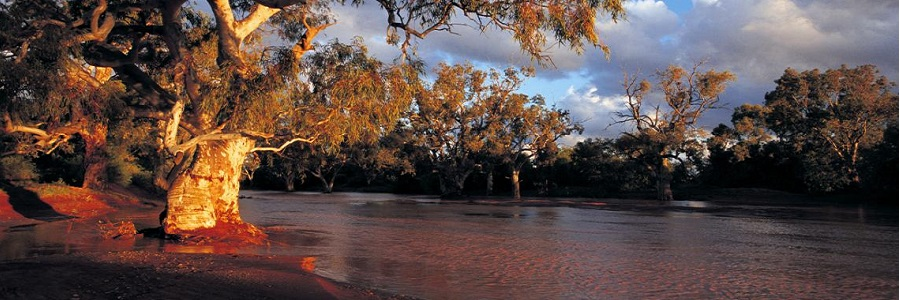Calls for all Pandemic era fines to be scrapped
Luke Williams
06 January 2023, 8:40 PM

Community legal groups have made an impassioned call to have all remaining pandemic period fines for covid breaches withdrawn following a new report revealing how disadvantaged areas - including six in our region - were fined at a rate up to ten times those in Sydney's highest socio-economic bracket.
We can also reveal that our analysis of Government data shows the region’s fine liability more than doubled throughout year with the peak COVID penalty period.
The report shows a total of 1740 fines for COVID offences handed out to Western Plains residents during the pandemic. Of those fines, 97 were imposed on minors (people aged under 18 years).
The average fine for Western Plains residents was just under $1000.
Most are subject to enforcement actions and those who are paying off fines are most often having it deducted from their Centrelink payments.
Walgett and Brewarrina had the highest rate of fines across the state with Warren, Gilgandra and Bourke residents also featuring amongst the top 10 most penalised for Covid offences suburbs in the state.
Coonamble fine rates also only just trail Walgett and Brewarrina on a per population basis.

A stay at home directive made during between July and September 2021 – when the vast majority of pandemic era fines were made, Image: NSW government.
Further data analysis by the Western Plains app of children fined in the region shows that in Coonamble during the 2021-22 period all eleven fines on minors were Covid public order breaches.
The fine liability for minors increased from $2000 to $14,000 over the same period.
Almost all the fines came from the period after the Delta outbreak in July 2021 where there were fears of a mass outbreak and particular concerns about the impact on remote indigenous communities.
During the Delta peak up to 1000 people were being infected a day and it was in the same period that the virus was first detected in the region.
Police were given a range of extraordinary powers by Government directive rather than through new laws going through parliament.
Community legal centres want all Covid fines from that period revoked and a drastic re-think of how fines are used amongst the most financially disadvantaged in NSW.
Data from Revenue NSW shows Walgett residents were hit with nearly had nearly $200,000 worth of fines during 2021-22 - bringing the total fines for the year to double their normal yearly average.
Coonamble, and Warren which also featured in the top 10 highest fined postcodes during the period experienced a similar increase - with Warren recording almost three times the fine liability compared with previous years.
However, many of these fines have now been annulled.

Image: NSW Government.
In November 33,000 and 62,000 fines for breaking COVID-19 were withdrawn by the Revenue Commissioner following pre-trial concessions made by government lawyers in a test case brought by Redfern Legal Centre which found those fines lacked sufficient written detail of the offence.
Our analysis of Revenue NSW data shows the total number of COVID fines withdrawn from the Western Plains as a result was around 1300 of the 1740 issued.
This means residents still have around $400,000 worth of fines to pay and while most of those are now subject to pending or active enforcement orders which can lead to driver license revocation or wage garnishing, those who are paying are having it deducted from their Centrelink each fortnight.
New Report says high fine rates caused by “frenetic law-making” and “aggressive policing”
The COVID Criminalisation in NSW: A ‘Law and Order’ Response to a Public Health Crisis report argued that a period of intense police fining in 2021 with the outbreak of the Delta virus created “the twin legacies of a large debt burden for the socially disadvantaged” and the erosion of police and community relations.
The University of NSW report published information showing the lowest socio-economic group on average had three times the rate of people fined than postcodes in the highest socio-economic group for Covid offences such as not wearing a mask, gathering in parks, attending friends houses and refusing to comply with a police record.
It says the rapidly changing public health orders from July to September 2021 meant many people fined were genuinely confused about what the orders were.
The report also cites Walgett repeatedly and quotes the Dharriwaa Elders Group as stating that before fine data become public in February 2022 “they had, in good faith, been relying upon representations … that Walgett Police had the capability to use their discretion to appropriately enforce new powers afforded by Covid19-related Public Health Orders.”

Walgett's high rate of fining is being held up as an example of where the NSW Government's pandemic public safety failed. Image: Walgett council
“What we know is that there is no evidence that the heavy use of fines has benefited our community or achieved any public health outcome. Now we must take precious resources from our front-line services to address the harm caused by the heavy use of Public Health Order fines in Walgett by police officers” the Dharriwaa Elders Group said.
The report also shows how 25% of Bourke residents fined were immediately escalated to a court matter, which can increase the penalty, rather than an on-the-spot fine. This compares to the state average of just 9% for court escalation.
Calls for the NSW Government to withdraw all pandemic fines
In a joint statement with the NSW/ACT Aboriginal Legal Centre and the Public Interest Advocacy Centre Alexis Goodstone, Principal Solicitor, Redfern Legal Centre said "The UNSW report highlights the punitive nature of fines and the disproportionate impact fines have on First Nations people, children and those of low socio-economic status."
"Now we need to reflect on the time that has been and consider how policing could have been done differently, and what role it should play in any future public health response. We call on the NSW Premier to do the right thing and withdraw all COVID fines, and COVID offences before the courts."
Karly Warner, CEO of the Aboriginal Legal Service (NSW/ACT), added that “It’s time to cancel all remaining COVID fines” while the Dharriwaa Elders Group recommends “Emergency leadership proactively seeking local solutions within the Walgett LEMC to create public health safeguards to avoid unnecessary criminalisation."
There are still around 400 fines liable to be paid by Western Plains residents. 72 of the 98 penalties given to minors appear to have annulled by the November decision.
NSW Police declined requests for comment.
The NSW Premier’s office has also been invited to comment along with the NSW Opposition.




